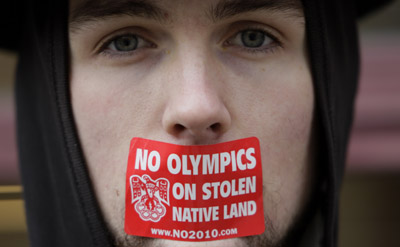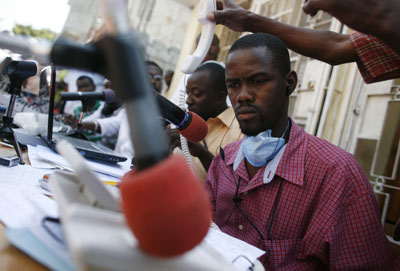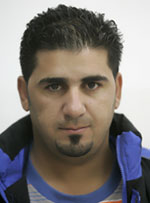Americas
2010
Attacks on the Press 2009: Nicaragua
Top Developments• Ortega administration marginalizes private media.• Authorities use legal harassment, smears against critics. Key Statistic 0: Number of press conferences held by Ortega since taking office. Three decades after a revolution swept the Sandinistas into power, the government of President Daniel Ortega still cast private media as enemies and moved forcefully to curtail their influence.…
Attacks on the Press 2009: United States
Top Developments • Authorities hold Iraqi journalist without charge or due process. • Obama, Congress send encouraging messages on press freedom Key Statistic 10: Days that U.S. immigration officials detained a VOA reporter during a visa dispute. The administration made encouraging statements in support of press freedom—including remarks by President Barack Obama on World Press…
Attacks on the Press 2009: Venezuela
Top Developments• Regulators strip licenses from critical broadcasters.• Government wages politicized investigation into Globovisión. Key Statistic 34: Private radio and television stations pulled from the air. After scoring a major victory in a February referendum that granted indefinite presidential re-election, President Hugo Chávez Frías and his government intensified their years-long crackdown on the private media. The government’s…
Attacks on the Press 2009: Americas Developments
ATTACKS ON THE PRESS: 2009• Main Index AMERICAS Regional Analysis: • In the Americas, Big Brother is watching reporters Country Summaries • Argentina • Brazil • Colombia • Cuba • Ecuador • Honduras • Mexico • Nicaragua • United States • Venezuela • Other developments BOLIVIA An anonymous caller threatened Raphael Ramírez, editor of the…

CPJ support helps an injured Haitian reporter
His collarbone severely fractured in the January 12 earthquake, Haitian journalist Yves Adler Boissonniere needed considerable medical attention—care that he could not get in his devastated country. With US$40 and a few gourdes (Haiti’s currency) in his pocket, Boissonniere decided in late January to cross the border to the Dominican Republic in hopes of getting…
Costa Rica eliminates prison terms for defamation
New York, February 12, 2010—The Committee to Protect Journalists today called on the Costa Rican legislature to remove criminal defamation provisions from its penal code after a recent Supreme Court decision eliminated prison terms from its 1902 Printing Press Law.

On way to Olympic protests, reporters stopped at border
New York, February 12, 2010—The Committee to Protect Journalists is concerned about reported border incidents involving journalists attempting to enter Canada from the United States to cover protests and other events related to the Olympic Games, which begin tonight.

Provisional media death toll rising in Haiti
A month after the January 12 earthquake, the death toll for journalists has risen to 26, with two others injured, according to a new provisional tally released by media groups in Haiti. Under the umbrella of International Media Support, a joint mission of press groups (including the Association of Haitian Journalists, SOS Journalistes, and the…

U.S military releases detained Reuters photographer in Iraq
New York, February 10, 2010—The Committee to Protect Journalists is relieved that the U.S military has released Iraqi photographer and cameraman Ibrahim Jassam today after holding him without charge for 17 months in Iraq, but calls on the U.S. government to ensure that this release marks the end of its policy of open-ended detentions of journalists. Jassam,…